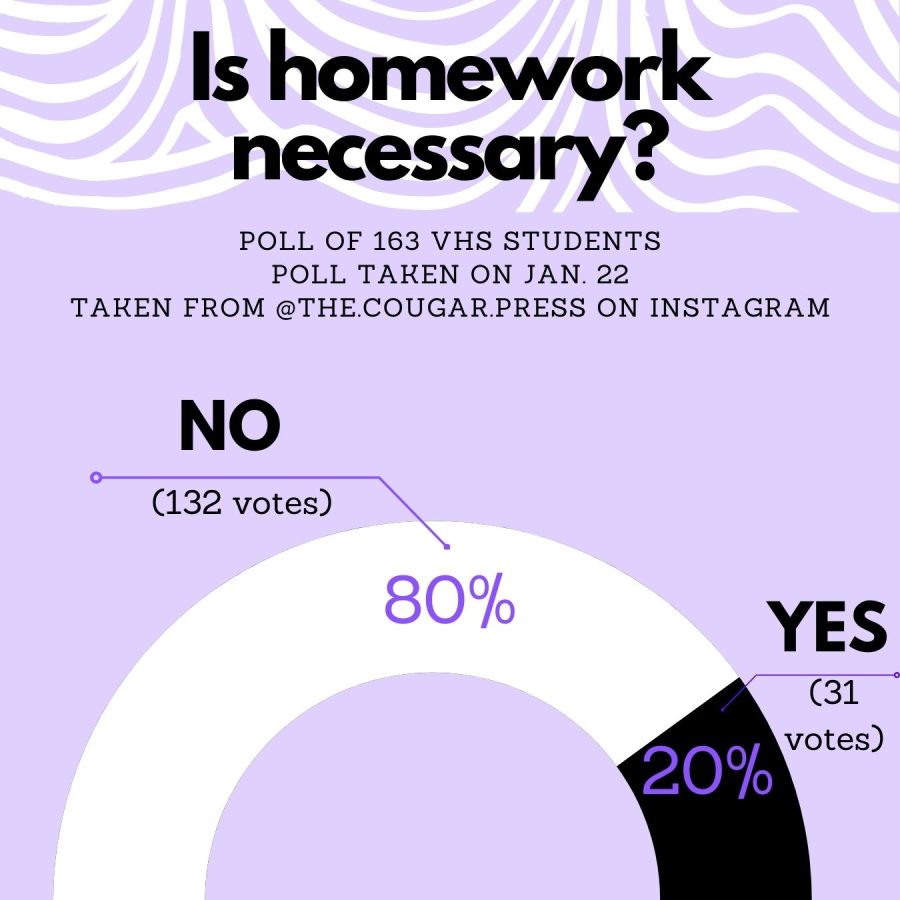Opinion: Honestly, who even likes homework?
January 26, 2022
The real downfall of students and a huge unspoken about issue of an average school: Homework
A common thought among students may be, “I wish I was doing something else” while in the midst of homework, and it’s definitely bothered students at least one point in their life. Homework may have some pros to it and may benefit some people, however the cons of homework far outweigh most benefits.
What is homework? Homework by definition is, “schoolwork that a student is required to do at home.” Many students may generally view homework as written work and papers, such as projects or essays, however the concept of homework originates back to Ancient Rome and starts with Pliny the Younger, an oratory teacher ( a teacher who teaches public speech and talking). He would often encourage his students to practice public speaking at home, the goal was to help students practice with developing fluency in their speech. The concept of homework that is familiar to us now, was officially created in 1905. A lesser known fact is that homework was originally made to be a punishment for bad students. It was created by Roberto Nevilis and was originally not mandatory. However, in the modern day American school system we know to this day, it’s been made to be mandatory. Yet, American students have consistently, without fail scored lower than students from other countries in academic subjects such as math and science, yet these countries also have a lower amount of homework given out to students.
What’s up with that?
Teachers may get upset with their students for not finishing homework, but honestly, what motivation is there for students to do time consuming amounts of homework a day, memorizing material that will eventually be forgotten? In a usual school day, students must attend school for at least a grueling minimum of seven hours a day, then having to go home and spend even more time on class work is bound to backfire at some point. According to The Washington Post, a study that went on for two years from 2018 to 2020, showed that the average American student did about 2.7 hours a night. So weekly, 2.7 hours over five school days, is 13.5 hours total. Which is upsetting to think about, considering how students have events, commitments and extracurriculars outside of school, while having to balance homework on top of that. What time could students even use to have personal times to ourselves at that point?
Ventura High School teacher Michael Saltzman does not believe in giving homework to students. “I don’t give it [homework]. I don’t think it’s necessary. I think students learn better when they’re in the classroom, learning with the teacher. Working from home is not possible for all students and even the students where it is possible, they should spend that time with family. They should spend that time studying for tests, if they have them, but doing additional work at home, to me, doesn’t benefit students at all.”

Many students even identify homework as one of their biggest sources of stress in their life.
Freshman Linnet Sanchez said homework stresses her out, “It’s a lot, and sometimes I don’t get it.” Sanchez believes homework gets in her way of being able to do more enjoyable things. She said, “It takes away my free time. I could be doing beneficial things.”
Elizabeth Martinez, a VHS senior, shared a similar sentiment. Martinez said, “I am a senior. It [homework] is a lot.’’ Martinez is on the VHS wrestling team and she feels the additional work at home interferes with her sport. She said it takes her “30 minutes to an hour” to complete homework every night.
While homework may be useful sometimes, it should not be a priority in any case. Too much homework will do the opposite of what the goal of school is. The priority for education systems should be to educate, not cause stress and unhappiness among students leading to counterproductivity.
“I just think for the current curriculum students have and this currents schedule…where they have to take six separate classes that are completely different and learn as much as they can, the hour a day when they are in the classroom is much more valuable if the time is spent working on the material and not expecting them to do additions work on top of that, outside of the classroom. Because they have five other classes to work on and… extracurricular activities.” Saltzman said in reply to being asked about his general thoughts on homework.
Yes, there have been studies linking academic benefits between students and homework. Also yes, homework can be useful for students on learning some topics at home that may not have been taught in class or developing a more in depth understanding of a topic. Saltzman agrees that there can be an upside to homework. “I think anytime you can get practice at something you’re trying to get better at, it can be a benefit,” said Saltzman. He also said, “If students do homework they can improve their skills, which is fine. I just don’t think it’s the best use of my student’s time.”
However, is there any reason to prioritize it over the real-world needs and physical as well as mental well being of a student?











